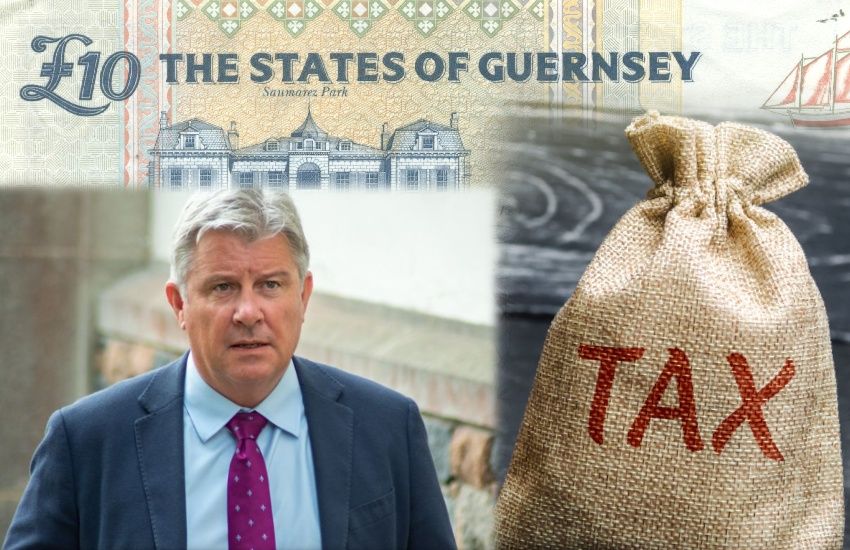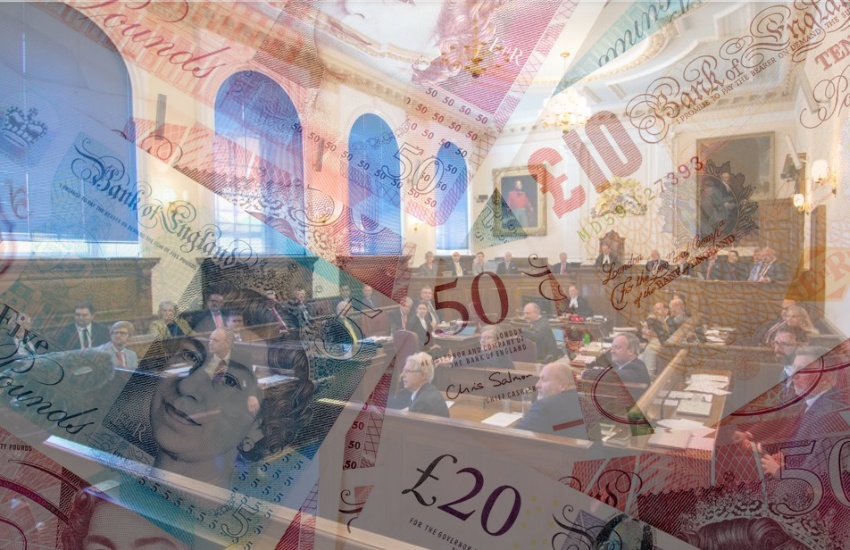


Guernsey's leading committee of politicians is looking at cutting the standard rate of personal income tax from 20p in the pound alongside proposals to introduce GST, Express understands.
The Policy and Resources Committee intends to publish plans before the end of this month for the biggest shake up of personal tax in decades ahead of a landmark States' debate in January.
It is widely expected to make another attempt to secure the Assembly’s backing to introduce GST at a rate of 5% or 8% on all purchases to help fill a black hole in States' finances which it projects will soon be £85million a year.
The Committee first proposed GST 15 months ago. But it has repeatedly deferred putting it to a vote in the Assembly while reconsidering other tax options and trying to win the support of more deputies.
Express understands from multiple sources that the Committee is now seriously considering asking the States to use some of the money raised by introducing GST to pay for a reduction in the headline rate of personal income tax from 20p in the pound to 19p in the pound or 18p in the pound.

Pictured: Deputy Mark Helyar told States' members on Wednesday that failing to back big tax rises in January could lead to significant job cuts in the public sector and he said yesterday that without tax rises "we are going to literally be shutting hospital wards".
The Committee did not reply to questions submitted by Express about its intentions on income tax.
But the Committee’s treasury lead, Deputy Mark Helyar, pictured (top), said in another media interview yesterday: "Watch this space because you may find that there will be significant tax reductions in the tax review."
It is understood that cutting the standard rate of 20p in the pound is one of a number of possible changes to income tax still being studied by the Committee just weeks before it submits its policy letter.

Pictured: States' members are expecting a landmark debate about future tax and spending at their first meeting in 2023 after they return from the Christmas and New Year break.
Guernsey’s rate of personal income tax was last reduced in 1959 when it was cut from 26p in the pound to 20p in the pound.
The Policy & Resources Committee has pencilled in Monday 28 November as the most likely date for submission and publication of its tax policy letter with a request for it to be debated by the States at their meeting scheduled to start on 25 January.
The Committee did not reply to questions from Express about how it intends to encourage public feedback on its proposals between publishing them and taking them to the States for debate.
Earlier in the States' term, it seemed unlikely that the Committee would be able to secure more than a handful of deputies' votes for GST. But the Committee is increasingly if quietly confident that it is gradually persuading more deputies to back its tax plans. It is understood that it calculates that there is now a reasonable prospect of getting its plans through the States.
However, it is likely that any major tax changes proposed by the Committee and approved by the States would not come into effect until 2026 at the earliest, which raises the possibility of the next general election in 2025 being dominated by tax and spending.

Pictured: Deputy Charles Parkinson has said previously that the Policy & Resources Committee should resign if it tries again and still fails to get its flagship fiscal policy of GST approved by the States. He said yesterday that he intends "to post a stream of tweets analysing the issues" ahead of the tax debate in January.
During the 2020 general election campaign, the Guernsey Party, which was led in the States by Deputy Helyar until he resigned from the role this week, said that one of its aspirations was to "reduce [the] tax rate for the lower/middle tier taxpayer[s] to 15% in [the] medium term".
Deputy Helyar also said at the time that he was "against" GST "as it harms the poorest in society" and that "calls for higher taxation…can only drive us towards long term decline".
In his closing speech on the 2023 Budget in the Assembly this week, Deputy Helyar told voters who may have backed him for his stance on taxation that he must now do what he believes is best for the island.
"I apologise to people who felt that they voted for me because I was going to do what I was told all the time. That's not going to happen," he said.
"I feel I have a public duty to make the right decision and I think we all should feel the same way in the best interests of the island and the Bailiwick as a whole."

Pictured: Reducing income tax and introducing GST would shift some of the personal tax burden from work-related earnings to consumers of goods and services.
States' Treasury officials and some politicians have consistently advised that the island's unusual reliance on income tax could could be a risk to future revenue and budget planning.
And during the 2012-16 States' term, the then Treasury & Resources and Social Security Departments tried unsuccessfully to persuade the Assembly to agree in principle that some of the personal tax burden should be shifted from taxes on income to taxes on consumption.
The Policy & Resources Committee believes that it is designing a new tax package which includes GST but better protects the poor and some middle income earners.
A working couple earning a total of £70,000 a year with tax allowances of £30,000 a year could expect to pay around £400 a year less in income tax if the standard rate was cut from 20p in the pound to 19p in the pound.
Comments
Comments on this story express the views of the commentator only, not Bailiwick Publishing. We are unable to guarantee the accuracy of any of those comments.